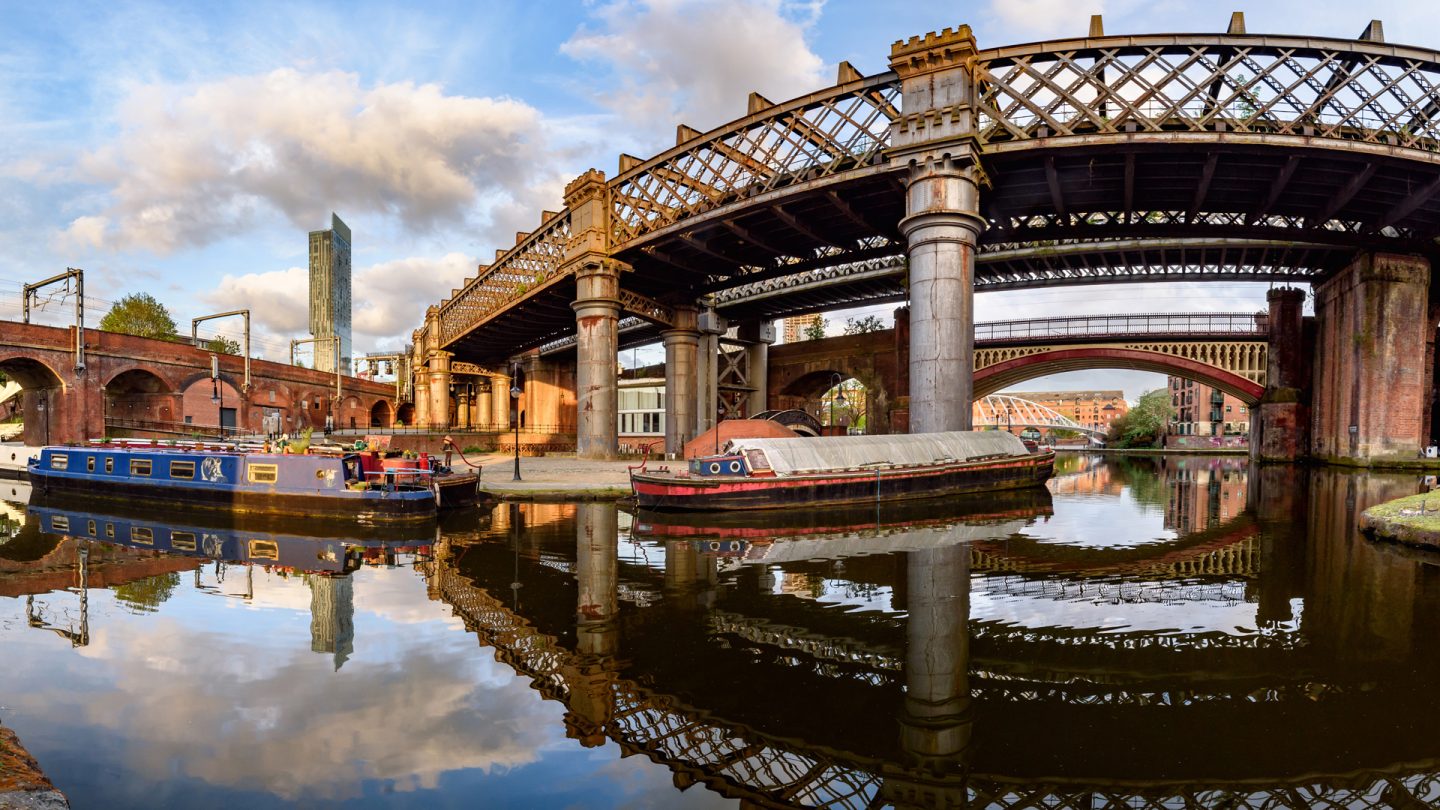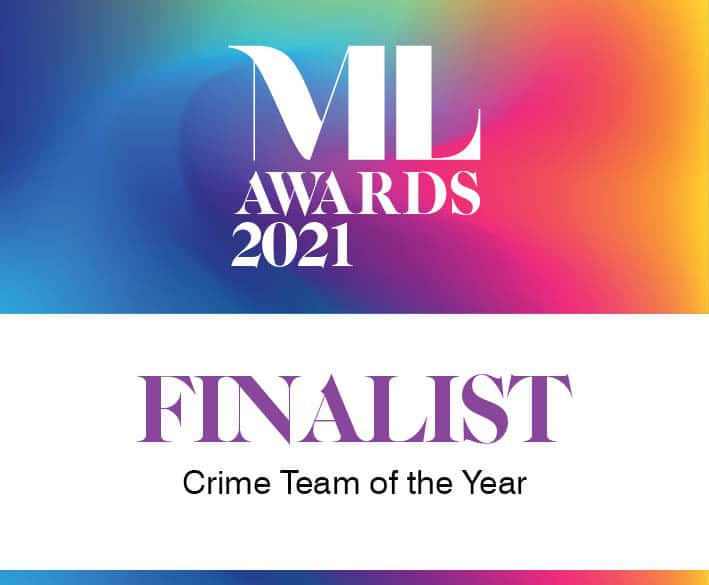
Solicitors for Production, Cultivation & Manufacture of Drugs
Put your trust in Clifford Johnston & Co.
- Specialist Lawyers For Drug Manufacture Offences
- Law Society Criminal Litigation Accreditation
- Cost Effective Specialist Legal Advice
- Contact our Drug Production Lawyers
Defence Solicitors for Allegations of Drug Production, Cultivation & Manufacture
Have you been accused of producing, cultivating or manufacturing controlled drugs? At Clifford Johnston & Co, we are highly experienced in advising individuals facing allegations of drug offences.
Our team of expert drug offence solicitors, led by the highly respected criminal defence lawyer Jared McNally, is here to defend your legal rights. We provide representation at every stage of the criminal proceedings. With a meticulous approach and a steadfast commitment to getting the best outcome available to you, we are dedicated to helping you navigate through your current situation. Our team comprises highly qualified lawyers who will stand by your side in both the Magistrates and Crown Courts. We also maintain close links with several specialist criminal defence barristers, ensuring you receive the best possible defence.
If you are facing drug-related charges, please don’t hesitate to contact us today. Our drug crime defence solicitors will provide comprehensive legal support throughout the entire process, ensuring you receive the highest level of defence from the initial interview to court appearances and beyond.
Sentencing guidelines for production, cultivation and manufacture of drugs
Section 4 of the Misuse of Drugs Act 1971 sets out that the production of class A drugs carries a maximum penalty of life imprisonment. Cases involving class B and C drugs, have a maximum sentence of 14 years in custody.
The Sentencing Council provides definitive guidance for all drug offences. Sentences for drug production can range from a discharge to life imprisonment, although very few sentences exceed 30 years. Offences involving class A drugs inevitably attract a lengthy sentence of imprisonment.
Other consequences of the production of controlled drugs offence include:
- Ancillary orders: These additional measures can include an injunction to prevent the production, supply, importation or exploitation of a drug, a travel restriction order, forfeiture and restraint orders. During the investigation, assets may also be frozen and cash or other assets seized.
- Proceeds of Crime: the prosecution may seek an confiscation order which, if granted, can lead to a defendant having to pay a significant amount of money to the Government.
How do courts determine the severity of drug production offences?
In drug-related offences, each case is considered individually. The judge must have regard to the applicable sentencing guideline and will take into account the following:
- Previous convictions or no relevant or recent convictions
- Level of remorse
- Level of cooperation during the investigation
- Reputation/good character
- Any learning disabilities/mental disorders
- Serious medical conditions requiring long-term, urgent or intensive treatment
- Whether related dependents rely on sole or primary care of the accused
- Whether the activity the accused took part in was originally legitimate
- Involvement due to pressure, intimidation or coercion falling short of duress
- Offender’s vulnerability was exploited
-
Determination and/or demonstration of steps having been taken to address addiction or offending behaviour
-
Age and/or lack of maturity
Given the complexity and serious consequences of drug production charges, it is crucial to seek immediate legal representation. An experienced solicitor can navigate the intricacies of your case, ensuring that all mitigating factors are thoroughly presented and that your rights are rigorously defended throughout the legal process.
What are controlled drugs?
Controlled drugs are regulated by the government. The Misuse of Drugs Act 1971 introduced controlled drugs and classified them as Class A, B or C. The most hazardous drugs are in the Class A category. Classification considers the extent to which the drug is:
- being misused,
- likely to be misused, and
- likely to create a social problem.
The list of controlled drugs under the Act is exhaustive and can be found on the Government website. Common examples of controlled drugs include:
- Class A: Cocaine, ecstasy, heroin and LSD
- Class B: Cannabis, ketamine, mephedrone, speed and some amphetamines
- Class C: Anabolic steroids, GHB and some tranquilisers
The penalties for producing controlled drugs vary depending on various factors, but in all cases, expert representation is necessary to navigate the complexities of the legal process.
What actions are considered production of drugs?
The production of drug offences includes the cultivation of cannabis and manufacturing quantities of controlled substances for commercial or personal use.
The circumstances surrounding your case will undoubtedly be unique, so it is crucial that you instruct an experienced solicitor to accompany you when being interviewed by the police.
Contact our drug offence solicitors today
Our drug offence solicitors specialise in serious crime offences, defending clients across the UK in all criminal law matters. We have built up a robust national reputation for our legal services. Our highly accredited Stockport & Manchester Solicitors are professionals in their fields, taking pride in providing a positive difference for our clients.
Whether you’ve been informed that you are the subject of an investigation, have been invited for an interview or arrested, you should contact us immediately. Our expert criminal defence lawyers are here to guide you through every step, clearly explaining your options and seeking the best outcome for your unique circumstances.
What will happen when I instruct a drug offence solicitor?
Securing a drugs offence solicitor early can significantly impact the investigation’s outcome. Our specialists will manage your case, ensuring you are well-informed and at ease throughout the process. This professional support often leads to more favourable results.
Can the police search my home?
Yes. When the police suspect a person of committing an offence and intend to arrest them, they can search any property under that persons control. Alternatively, the police can apply to the Courts for a a search warrant.
Can the police search my phone and social media accounts for evidence against me?
Yes. The police may search your phone and social media accounts depending on the circumstances. If the police stop you in the street, you will most likely not be required to hand over your phone. However, if your phone is seized upon arrest and/or as part of a search warrant, the police can analyse it. This may involve searching your web history and social media accounts, in addition to reviewing all your messages and contact with others. .
Is it possible to reduce a sentence for the production of drugs offence with a guilty plea?
Yes, pleading guilty in any case can reduce a sentence by up to one-third. Early guilty pleas save court time and protect witnesses from unnecessary trials, ultimately influencing the sentencing outcome. The credit a defendant can receive for pleading guilty can sometimes reduce their sentence by several years.











